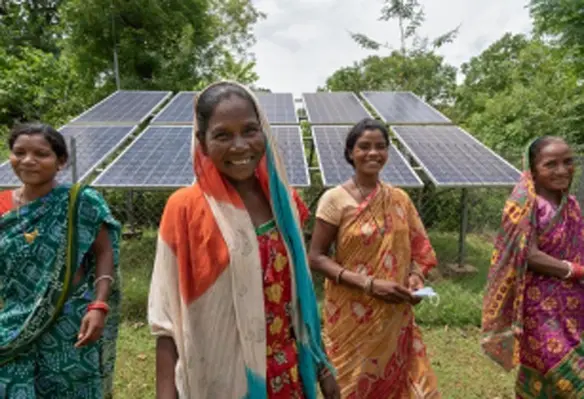On World Food Day, farmers in the UK and globally showed how innovative farming methods and techniques can improve lives, help meet global climate targets and produce food without harming the natural environment
Regenerative farming practices, such as ditching artificial fertiliser and replanting hedgerows, could boost wildlife and create carbon savings equivalent to taking 900,000 cars off the road. However, there has been confusion among farmers and environmental groups over the government’s post-Brexit farming policies, including subsidy schemes and ways to encourage regenerative farming and better countryside management to improve biodiversity.
“The UK government is causing chaos in the countryside at a time when we desperately need to plough a new path where food is grown in a way that’s climate-friendly and protects, rather than destroys, nature,” said Harriet Lamb, CEO at climate charity Ashden. “Ashden works with organisations across the country, and globally, that are pioneering positive solutions in agroecology, reducing food waste, improving soil and providing training and jobs – all trailblazing initiatives that need support to scale and spread.”
FarmED is a UK not-for-profit organisation raising awareness on regenerative farming through a series of nature friendly techniques that enrich the soil while removing CO2 from the atmosphere. The finalist in the 2022 Ashden Award Greening All Work category, based in the heart of the Cotswolds, has been educating members of the local community, farmers, policy makers, students and researchers on the benefits of nature-based farming. “What we need is a resilient food system that doesn't overuse our natural resources, rebuilds soils and ecosystems and is fair and equitable for all,” stated FarmED founder, Ian Wilkinson.
In the Energising Agriculture awards category, finalist Collectives for Integrated Livelihood Initiatives (CInI) have been supporting Indian women to raise their incomes from farming and become leaders in their communities.They receive training in new techniques and practices and sell their produce collectively for a larger profit. Membership also grants access to affordable finance for technologies such as solar water pumps and biogas digesters, and the chance to buy seeds together for a lower price. Moreover, the use of clean energy technology has boosted production of vegetable crops such as tomato, chilli, eggplant and other staple crops.
In Kenya, Ashden Award 2022 finalist Sokofresh is bringing mobile, solar-powered cold rooms to the country's smallholder farmers, thus helping them get a better, more reliable income from what they grow. The company’s smart tech encourages individual growers to come together and supply large orders to commercial buyers, cutting out middlemen. This means that even the poorest can sell to Kenya’s biggest food brands and exporters and retain more of the value.
In Peru, Ashden Awards Natural Climate Solutions finalist El Ejecutor del Contrato de Administración de la Reserva Comunal Amarakaeri (ECA-Amarakaeri) is supporting sustainable Brazil nut production which, in turn, promotes cacao production, sustainable tourism, fish farming and poultry breeding. The project offers communities the skills to carry out Brazil nut production, ensuring that women and young people take part in the harvesting and marketing processes. Women occupy key leadership positions in the project.




